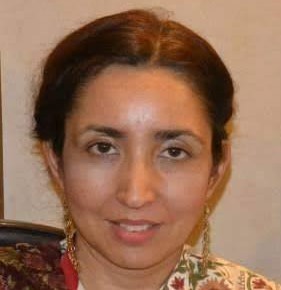The Dharna: Science fiction and ground reality
by Rizwana Khan
In Slaughterhouse-Five by Kurt Vonnegut, a guy “was shot in Dresden for taking a teapot that wasn’t his.” Men and women were tear gassed. The military dictator raked up a long list of human rights violations in the process. This is science fiction. Is reality any different?
Half a century later, in a country on the other side of the world, human rights activists organize a dharna: a non-violent sit-in for a swift restoration of justice and a state response to the presence of a military dictator.

In an unexpected coming together of industrialists, lawyers, and young people, this dharna promises to be a powerful show of force. The elderly join in too with their gout, arthritis, and “replaced” hips. Wobbling on their walking sticks and rollators, they join the crowds of protestors and add their voice to the widespread dissent. Young women straight out of beauty parlors with dyed and straightened hair, designer handbags on their arms, stand side by side with college students who have decided to skip today’s classes for a greater cause.
I stand right here beside them and their brightly painted placards. Recently returned from the USA, I want to show my support for the citizens of the country of my birth – I am one of them.

We discover that the main roads are blocked, but we make our way to the Lahore High Court from another route. The lawyers in their black coats and white shirts are already there.

The police are there too. in newly pressed green uniforms, and guns cocked. They parade before us. We are not intimidated. When they are ordered to fire at the protesters, they point their fire-arms in our direction. We stay put. And I look around tentatively, assessing the situation.
Without warning, they start attacking the young men among us – with batons. They drag off elderly women from the curb. The smoke and acrid fumes of tear gas envelope us, and it’s hard to breathe or see. With eyes watering and lungs ready to burst, we continue to wave flags and shout slogans. We aren’t discouraged even when we are fired at and bundled up in police vans. We know our rights as citizens.
Freedom of press
Media vans with satellite dishes lift reporters in cranes to get an aerial view of the chaotic scene. International reporters document human rights violations live on television. They question the need for such a brutal response to a non-violent dharna. I question it too.
The reality of the fight for justice
The protesters meet the challenge with vigor and continue their march. The wrought iron gates of the Lahore High Court are opened. We rush in. Once inside, I splash my face with water from a plastic bottle. My eyes are red and my lungs still hurt. I look around for my husband. He is helping an old lady get up off the road. The police continue with their lathi-charge. Their batons are being used indiscriminately. I move away quickly – out of their range.
The lawyers want the military dictator out. They pitch explosives – like cricket balls – at the police. Explosions and fire bombs fill the air with flames and smoke.
“Is this what I came for?” I ask myself as I look at the madness around me. “Am I prepared to die for this?”
Mass arrests are made and protestors are dragged off in handcuffs. Rubber bullets are fired into the crowd, but our hoarse voices keep shouting, “Go Musharraf Go!”
Why do we put ourselves in the line of fire?
I decided to participate in this protest because I believe in the cause: democracy and freedom. My nation has survived a number of military dictatorships and I believe they stunt our growth; we cannot develop politically, culturally, or in any of the ways other counties develop. I am trying to help democracy grow and flourish in my home country, but this experience has left me completely shattered.

Rizwana Khan is a writer and an educator. She was born in Pakistan and later moved to California, USA. She studied English Literature from California State University, Northridge. After moving back to Pakistan with her family, she joined an apolitical organization, Concerned Citizens of Pakistan, participated in the Lawyers Movement, and started Education Therapy for children with special needs. Nowadays she shares her ideas with people around the world through the following sites:

